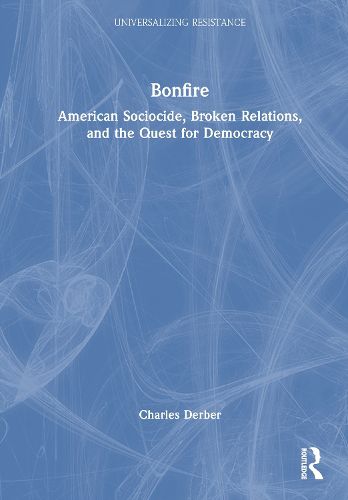Readings Newsletter
Become a Readings Member to make your shopping experience even easier.
Sign in or sign up for free!
You’re not far away from qualifying for FREE standard shipping within Australia
You’ve qualified for FREE standard shipping within Australia
The cart is loading…






Charles Derber shows how the US is moving toward sociocide-the erosion of durable, positive social relations in the economy, family, politics, and civil society essential to sustaining society itself-while offering pragmatic solutions.
Bonfire: American Sociocide, Broken Relations, and the Quest for Democracy examines how new technologies and financial strategies are part of broader economic, environment, cultural, and political shifts that create tipping points generating more competition, distrust, isolation, and violence. In doing so, Derber spells out the implications for democracy and social cohesion. Importantly, he explores options that could stop the spiral and reconstruct a sustainable and equitable community, civil society, and democracy via emerging movements against neoliberalism capitalism, climate change, war-and in favor of labor solidarity, human rights, and community.
This book will be of interest to students, scholars and activists engaged in politics and political sociology in the US.
$9.00 standard shipping within Australia
FREE standard shipping within Australia for orders over $100.00
Express & International shipping calculated at checkout
Charles Derber shows how the US is moving toward sociocide-the erosion of durable, positive social relations in the economy, family, politics, and civil society essential to sustaining society itself-while offering pragmatic solutions.
Bonfire: American Sociocide, Broken Relations, and the Quest for Democracy examines how new technologies and financial strategies are part of broader economic, environment, cultural, and political shifts that create tipping points generating more competition, distrust, isolation, and violence. In doing so, Derber spells out the implications for democracy and social cohesion. Importantly, he explores options that could stop the spiral and reconstruct a sustainable and equitable community, civil society, and democracy via emerging movements against neoliberalism capitalism, climate change, war-and in favor of labor solidarity, human rights, and community.
This book will be of interest to students, scholars and activists engaged in politics and political sociology in the US.